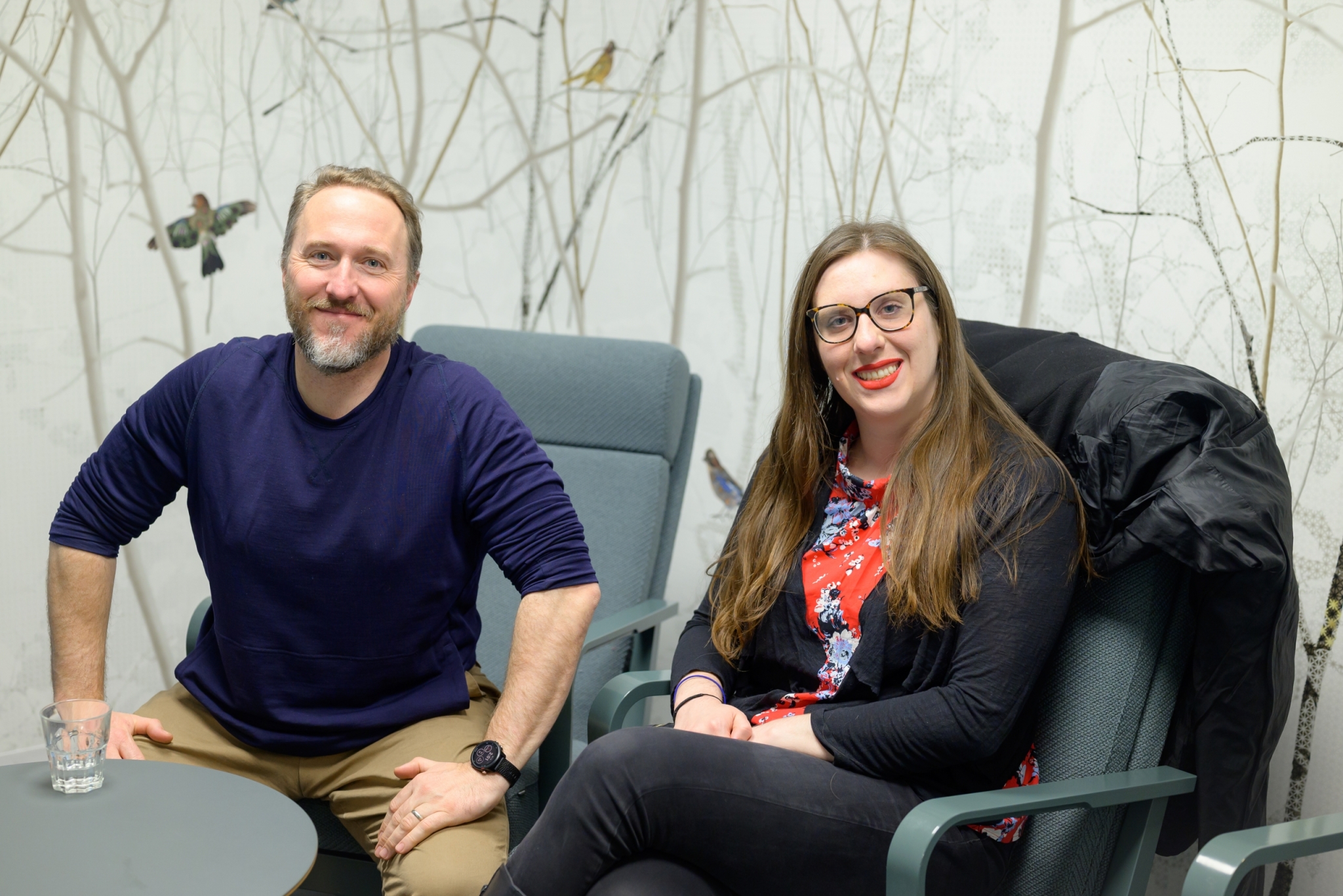Model how a microbe can tell a friend from a foe
17 projects from Swedish universities were granted from the SciLifeLab and Wallenberg national program for data-driven life science. Eric Libby and Laura Carroll were the only Umeå University researchers awarded funding and are now searching for PhD candidates to the project ‘Can microbes distinguish friend from foe?’.
“With this project, we are combining areas that I usually work on, the evolution of biological complexity, with approaches connected to my colleague Laura’s expertise in metagenomic data analysis and bioinformatic methods development,” says Eric Libby, Associate professor at the department of Mathematics and Mathematical Statistics at Umeå University, and primary advisor for the future PhD student.
The SciLifeLab and Wallenberg national program for data-driven life science, DDLS, aims to train and recruit the next generation of life scientists, creating a strong computational and data science base. The recent call for DDLS PhD project proposals is part of the DDLS research school initiative within the program, launched in 2024. PhD students in the school will have access to a network of other students, connected through their common grounding in data-driven life science, and training opportunities to perform cutting-edge research. DDLS focuses on four strategic areas for research, and the project awarded was one of four approved projects in the ‘Evolution and biodiversity’ category.
“I think DDLS is a great environment for people who want to bridge the gap between biology and computational science, and it is fantastic that our project was successful!” commented Laura Carroll, Assistant professor at the Department of Cinical Microbiology and DDLS fellow in the epidemiology and biology of infection strategic area and a co-advisor for the future PhD student.
Detect cooperators and competitors
Laura Carroll is primarily interested in leveraging massive microbial (meta)genomic data sets to gain insight into microbe-microbe and microbe-host interactions, while Eric Libby also has interest in these interactions, exploring them with mathematical modeling. They found common ground with the proposed project.
The project team will investigate a simple yet fundamental question in microbiology: how can a microbe tell if other microbes in the environment are friendly or hostile? The question is not trivial. A microbe cannot ‘look’ around and understand its environment – it must make decisions based on what it can detect – the molecules and compounds that are being taken up or spat out by the organisms around.
“Think of it like a card game. You cannot see the hands of the other players or know their intentions, you can only see the cards that are played. You must decide which card to play yourself based on the cards you observe,” explains Eric Libby.
More than basic research
Disentangling this question is of great importance in terms of understanding fundamental microbial ecology, but it could have ramifications outside of fundamental science, according to Eric Libby:
“If you wanted to create a well-functioning, cooperative community of microbes, for example within synthetic biology, or within our own microbiomes, then it helps to understand how microorganisms adjust their behaviors based on what they can detect around them.”
Strong environment for the PhD student
Besides focusing on high quality research, a strong local research environment was also an important factor in the recent call. Eric Libby and Laura Carroll are both connected to the Integrated Science Lab (IceLab), and Umeå Centre for Microbial Research (UCMR). Laura is also a DDLS fellow and a member of the Laboratory for Molecular Infection Medicine Science (MIMS). These are all interdisciplinary environments or centers within Umeå University that are highly active in terms of research, training, and networking activities for their members.
“IceLab will be a perfect home for our future PhD student – an interdisciplinary space that has many other PhD students and postdocs working in computational life science willing to offer support and collaborate,” says Laura Carroll.
The academic call received in all 227 applications and the approval rate was just 8 percent. Recruitment is open for the position between 13 May and 17 June. PhD students in the DDLS program are expected to begin by October 2024.
Read more about the project and apply for the PhD position

